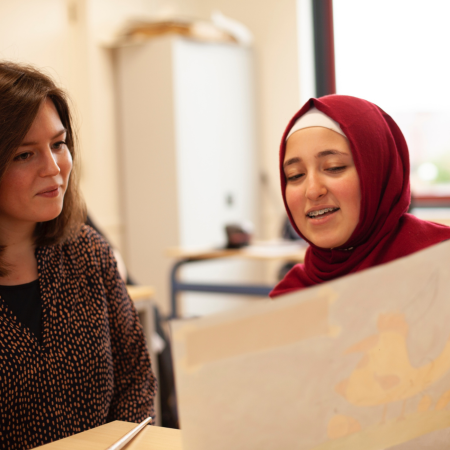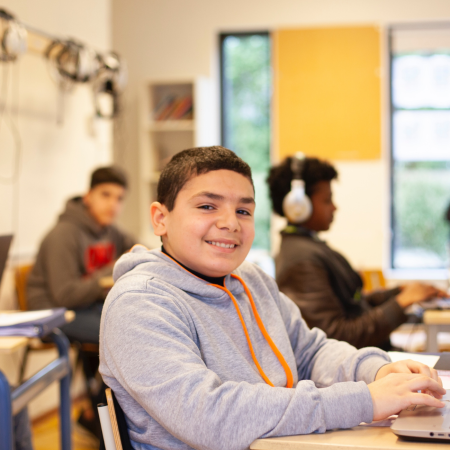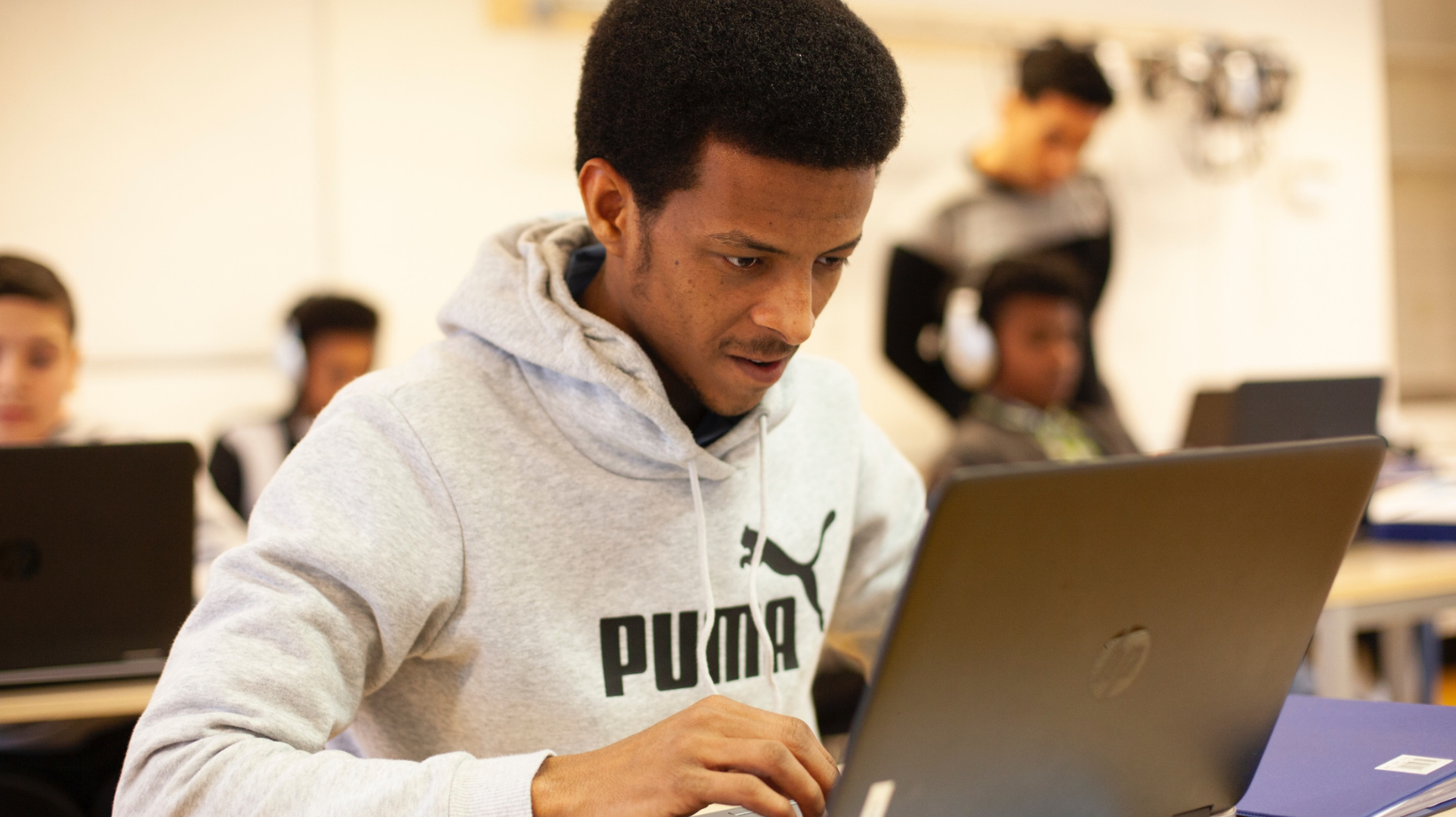LEARNING IN A SAFE ENVIRONMENT OF TRUST
All the pupils at ISK are in a similar situation: they are newcomers to this country and they don’t speak Dutch as well as they speak their own language, if at all. Our team of professionals create a safe environment of trust for them, and the pupils provide a lot of support to one another too. Pupils settle in quickly at ISK!

START AS SOON AS POSSIBLE
Pupils can start at ISK at any point during the academic year. Ideally we like them to join us as soon as possible because the sooner they start learning Dutch, the better! Pupils are allowed to attend ISK for a maximum of two years. The actual duration depends on each pupil’s specific needs. Some pupils manage to achieve a sufficient level of language proficiency within the space of a year.

GROUPED BY LANGUAGE LEVEL
Based on the introductory meeting and a number of tests, we determine the most suitable group for each pupil. The groups are split by language level rather than by age. Pupils who have just started learning Dutch are grouped together in one class, while those who have been in the Netherlands for longer and are at a similar level of language proficiency are grouped together in another. We have four classes in total. They are all small (each with approximately 15 pupils) so that we can give every pupil lots of attention. Each class spans the age range of 12-18.
LEARNING DUTCH IS A TOP PRIORITY
A large proportion of the time in the classroom is spent on helping pupils to read, speak, write and understand Dutch. The other subjects are maths, world orientation/citizenship, drama, creative expression, sport and – if necessary – English. Additionally, we teach career orientation lessons during which pupils learn about the Dutch education system and get an initial introduction to professions and study programmes in the Netherlands.
Besides that, we teach pupils to think about their own learning process and the skills they need in order to do well at school, such as teamwork, planning their homework, social skills and so on.
VARIED TEACHING METHODS
We use digital methods to teach maths and Dutch. The Dutch language-teaching programme is specifically designed for teenagers and is built up around various themes. We regularly organize practical lessons based around those themes to help the pupils to learn more about their surroundings and Dutch society and culture. For example, this can include joining Dutch pupils in a cookery lesson or technology lesson, going on company visits in Wageningen, interviewing local people, going on ‘speed dates’ with Dutch pupils or attending guest lectures by people who explain more about their chosen profession. Each theme concludes after approximately three weeks with a test, for which the pupils are awarded a mark.

ASSESSMENT
Once a pupil has been at our school for approximately five months, we assess how much they have learned based on tests used by ISKs nationwide. The tests assess the pupil’s level of reading, listening, writing and vocabulary. We also conduct oral exams once a year in line with the Common European Framework of Reference for Languages: Learning, Teaching, Assessment (CEFR model: A1 - A2 - B1 - B2). Additionally, the pupils do a maths exam and – if necessary – an exam to assess their level of English, but this is not done until later in the ISK programme.
PROGRESS MEETINGS
We discuss the results of all the tests and exams with pupils and their parents/guardians during individual progress meetings twice a year.



